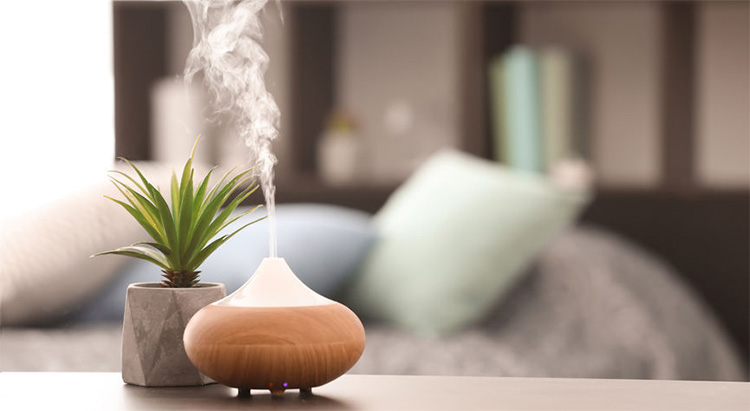Essential Oil Diffuser Safety Tips

Essential oils can help to improve our mood, can help support our respiratory health, can help to reduce airborne germs and can help to reduce unpleasant odors. However, it's important to diffuse essential oils sensibly and not overdo it. Start learning how to diffuse safely by exploring the following tips.
- Before diffusing any essential oil, be sure to familiarize yourself with general essential oil safety principles and research/review the safety precautions associated with each essential oil that you use. You can start doing that by exploring AromaWeb's Essential Oil Directory featuring over 130 essential oil profiles and reading the safety information that they contain.
- Essential oils are highly concentrated. They should not be continuously diffused. Be sure you are diffusing in a well ventilated space.
- Refer to the instructions that came with your particular type of diffuser. Do not exceed to amount of essential oil recommended for your particular diffuser.
- Do not diffuse more essential oil than is necessary. Essential oils should not be diffused in significant concentration. Less is more with essential oils.
- Olfactory fatigue is a phenomenon where you are no longer able to easily perceive an aroma, even if the aromatic molecules are still present. Even if you no longer can smell an essential oil or blend as it is being diffused, the essential oil still likely being inhaled into your lungs.
- If diffusing around cats and other pets, be sure they aren't confined strictly to the room in which you are diffusing. Allow them to leave the area if they need to.
Robert Tisserand, author of Essential Oil Safety and the Tisserand Institute advise the following:
"It is not advisable to directly and intensively inhale essential oils for longer than 15-20 minutes, such as with steam inhalation. However, this does not apply to ambient inhalation from essential oils vaporized into the air. If you are diffusing essential oils, it makes more sense to do this intermittently than constantly, all day long. Ideally, diffuse essential oils for 30-60 minutes on, then 30-60 minutes off. This is not only safer, but it's also more effective as both our bodies and our nervous system habituate to essential oils after this period of time. Whenever you are using or diffusing essential oils, some air exchange (fresh air) is advisable."
Source: "How to Use Essential Oils Safely". Tisserand Institute. Accessed: April 27, 2019.
Diffusing in Classrooms and Public Places
Diffusing in classrooms, offices and public places can be a potentially risky and unsafe practice because some essential oils have the potential to exacerbate particular medical conditions. Everyone is different, and diffusing in a classroom or public space can risk the wellbeing of those who have conditions in which particular essential oils are contraindicated.
Instead, consider using a Personal Essential Oil Inhaler as an alternative.
